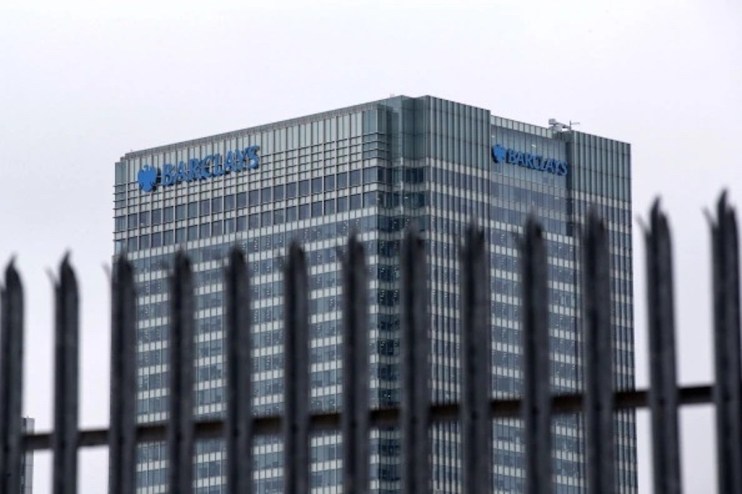Barclays shares rise as booming US credit cards and higher interest rates helps bank beat expectations

Barclays shares rose after it beat expectations in its first quarter results, as pretax profit rose 16 per cent on a strong performance from its domestic bank and booming US credit card spending.
Across the group, Barclays’ pretax profit was £2.6bn, up 16 per cent from last year and comfortably beating company compiled consensus of £2.2bn in profit. Chief executive CS Venkatakrishnan said “this was a record quarter of profitability for the bank.”
Shares were up over four per cent in morning trading.
Like other banks, Barclays’ domestic bank was boosted by higher interest rates with income increasing 19 per cent.
Barclays’ net interest margin was 3.18 per cent, up from 2.62 per cent in the same quarter last year helping interest income grow 21 per cent. The bank expects the margin to continue to grow over the year.
The Bank of England’s battle against inflation has seen rates raised eleven times in a row, significantly boosting banks’ coffers as they receive more in interest payments than they pay out to depositors.
In Barclays’ Consumer, Cards & Payments business, profit rose 47 per cent thanks to growth in US cards balances.
The improved margins included the effect of its acquisition of retailer Gap’s credit card portfolio in August last year as part of its attempt to boost its market share in the US credit card market.
Barclays also said it had benefited from the strong dollar saying, “the appreciation of average USD against GBP positively impacted income and profits.”
Although the bank benefited from higher card balances, impairment charges rose significantly to £524m from £141m last year due to higher balances and the expected “normalisation” of US cards delinquencies.
Hargreaves Lansdown’s Matt Britzman said “there are some signs of strain in the US, where credit card balances are building. That benefits Barclays, especially in a higher rate environment, but the flip side is higher default rates.
“It’s nothing to get too worried about for now, credit impairments were comfortably within target range, but worth keeping an eye on,” he continued.
Profit in its investment banking division increased one per cent to £4.0bn with a strong performance in corporate banking and fixed income trading helping to offset lower fees in investment banking.
Bloomberg Intelligence’s Philip Richards said the strong performance in fixed income “confirms strength in the investment bank’s franchise, while adding diversification to income as interest-rate driven upgrades fade.”
Venkat noted the group’s performance came amid “a challenging environment for the banking sector globally.”
Deposits have been in focus in recent weeks after the rapid collapse of Silicon Valley Bank and its impact on the banking sector. Venkat said the bank’s risk management “insulated Barclays from recent events in the industry.”
Barclays said its deposit ratio has remained stable at 73 per cent, unchanged from December. It said the bank maintains a “diverse and stable deposit franchise” across different geographies.
Despite this, Venkat sounded a note of caution, suggesting that volatility in specific sections of the sector “does cast a bit of a shadow over the rest of the sector”.
The bank said it is on track to deliver its 2023 targets with its performance “in line with or ahead of guidance”.